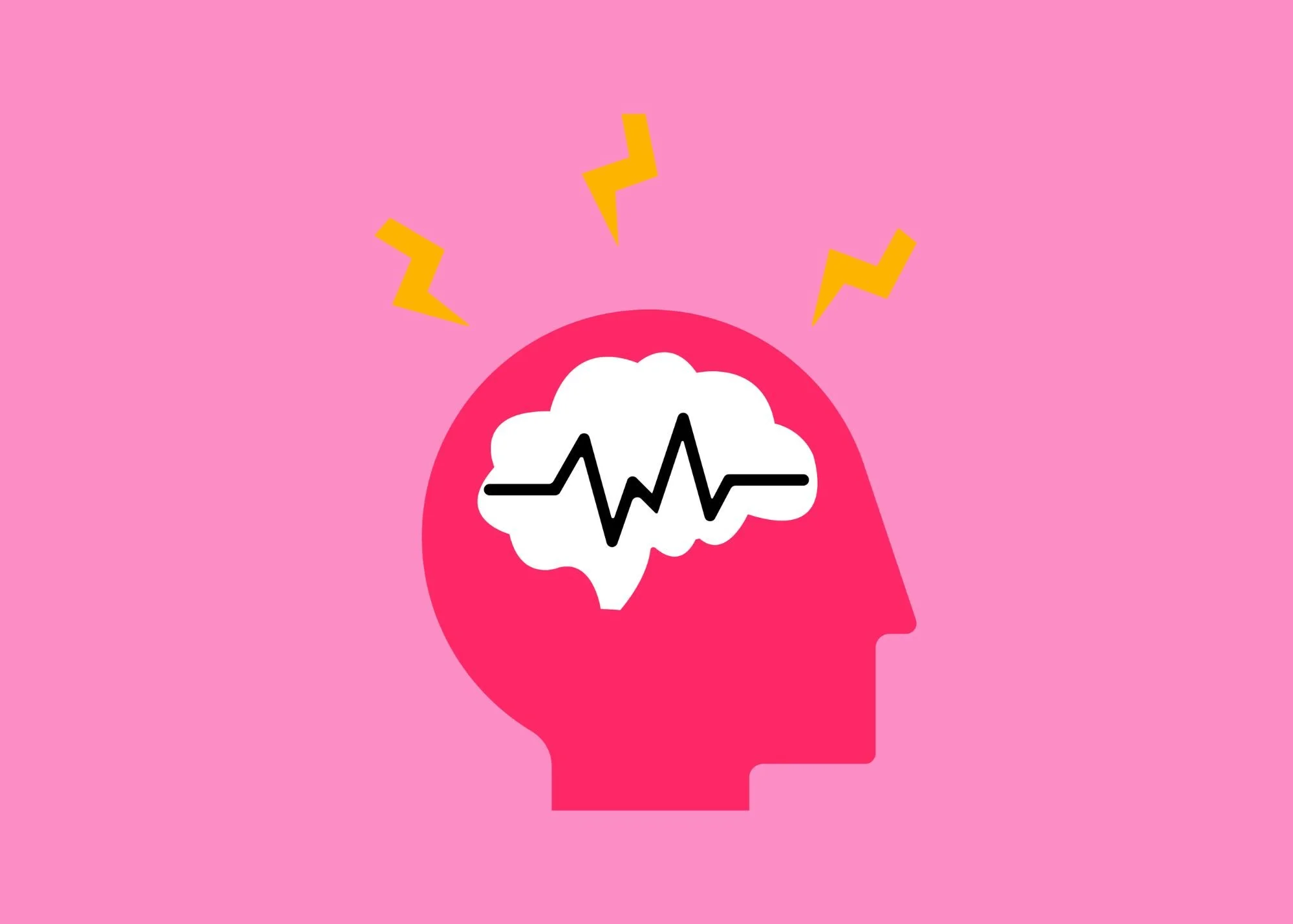The Way You’re Eating Might Be Destroying Your Mental Health and Wrecking Your Mood
Fatigue? Constant anxiety? Bad moods? Feeling off? It’s time to check your nutrition.
You’re not broken. Your brain isn’t betraying you. The problem might not be in your head—it might be in your metabolism.
Metabolic syndrome—a cluster of conditions including insulin resistance, high blood sugar, elevated blood pressure, and excess body fat—doesn’t just impact physical health. It also has profound effects on brain function, contributing to fatigue, brain fog, anxiety, and depression. If your metabolism isn’t functioning properly, your brain isn’t either.
Before we dive into the science, let’s get one thing clear: If you’re experiencing severe or persistent mental health symptoms—such as extreme fatigue, chronic anxiety, depression, or cognitive decline—you should consult a medical professional. While lifestyle changes can have a profound impact, conditions like clinical depression, anxiety disorders, and metabolic dysfunction may require professional evaluation and intervention. This article is here to educate and empower you, not to replace expert care.
What Is Metabolism, and Why Should You Care?
Metabolism isn’t just about burning calories. It’s the process by which your body converts food into energy. And guess what? Your brain is the most energy-hungry organ in your body. If your metabolism is sluggish or dysfunctional, your brain suffers first.
When your brain doesn’t get the fuel it needs, you get symptoms like:
Persistent fatigue
Anxiety and irritability
Brain fog and difficulty concentrating
Low motivation and mood swings
Poor sleep
Increased cravings for sugar and processed foods
These aren’t just bad days. They’re red flags that your brain isn’t getting what it needs to function optimally. Leading experts like Dr. Chris Palmer and Dr. Daniel Amen are uncovering the critical role metabolism plays in mental health, and their findings are transforming the way we think about anxiety, depression, and even serious psychiatric disorders.
The Groundbreaking Work of Dr. Chris Palmer & Dr. Daniel Amen
Dr. Chris Palmer, a Harvard psychiatrist and the founder of the Metabolic & Mental Health Program at McLean Hospital, has spent nearly 30 years studying what most mental health professionals overlook: the undeniable link between metabolism and brain function.
His Brain Energy theory suggests that conditions like depression, anxiety, and even schizophrenia may be, at their core, metabolic disorders affecting the brain’s ability to produce and use energy efficiently. His work is revolutionizing treatment for patients with treatment-resistant mental health conditions.
Dr. Daniel Amen, a psychiatrist and brain imaging expert, has also been at the forefront of this movement. He has conducted over 200,000 SPECT brain scans to understand how blood flow and metabolism impact mental health. His research highlights how poor diet, inflammation, and lifestyle choices physically alter brain structure and function, leading to anxiety, depression, and cognitive decline. Dr. Amen’s work underscores that mental health is brain health—and that taking care of your brain’s metabolism is one of the most effective ways to improve mood, focus, and resilience.
7 Signs You Might Have a Metabolic Disorder
Dr. Palmer and Dr. Amen identify these seven common indicators that your metabolism (and therefore your brain) may be struggling:
1. Insulin resistance – Do you feel like carbs make you crash? Are you always craving sugar?
Does pasta make you sleepy?
Do you get irritable or shaky if you go too long without eating?
Do you store excess fat around your midsection?
2. Chronic inflammation – Frequent bloating, joint pain, or unexplained fatigue? Inflammation disrupts brain function and mood regulation.
Do you often wake up feeling stiff or swollen?
Have you been diagnosed with an autoimmune condition?
Do you feel more anxious or depressed when you eat inflammatory foods (sugar, seed oils, processed carbs)?
3. Poor mitochondrial function – Mitochondria are your cells’ energy powerhouses. When they don’t work well, neither do you.
Do you experience chronic fatigue even after a full night’s sleep?
Do you struggle with persistent brain fog?
Have you noticed a decline in endurance or physical performance?
4. Hormonal imbalances – If your cortisol (stress hormone) is constantly high, it can disrupt your metabolism and mental state.
Do you frequently feel wired but exhausted?
Do you have trouble falling or staying asleep?
Have you noticed sudden weight gain or loss, especially in response to stress?
5. Nutrient deficiencies – Magnesium, omega-3s, and B vitamins are crucial for brain health. Low levels can contribute to anxiety and depression.
Do you frequently experience muscle cramps or restless legs?
Do you have trouble concentrating or feel mentally sluggish?
Do you eat a diet low in whole, nutrient-dense foods?
6. Gut dysfunction – Your gut microbiome plays a direct role in brain function. Frequent digestive issues? That’s a red flag.
Do you struggle with bloating, gas, or irregular bowel movements?
Have you taken multiple rounds of antibiotics in the past?
Do you notice mood swings or anxiety after eating certain foods?
7. Sedentary lifestyle – Lack of movement tanks your metabolism and negatively affects neurotransmitters like dopamine and serotonin.
Do you sit for long periods without moving?
Do you feel mentally sluggish on days when you don’t exercise?
Have you noticed a difference in your mood when you engage in regular physical activity?
How the Brain Energy Protocol Can Help You Heal
Dr. Palmer’s Brain Energy protocol isn’t just another wellness trend—it’s a science-backed, practical approach to restoring metabolic health for better mental well-being. Dr. Amen’s work complements this approach by providing brain scans that visually confirm the effects of lifestyle and metabolic health on brain function.
Here’s how you can start implementing their findings today:
Prioritize Nutrient-Dense, Low-Inflammation Foods
Your brain runs on nutrients, not ultra-processed junk. Studies show that diets high in refined sugars and processed carbs increase depression and anxiety risk. What works instead? A whole-food, anti-inflammatory diet rich in:
Healthy fats (avocados, olive oil, wild-caught salmon)
Lean proteins (grass-fed beef, pasture-raised poultry, eggs)
Fiber-rich vegetables and complex carbs (leafy greens, sweet potatoes, quinoa)
Brain-boosting micronutrients (magnesium, zinc, B vitamins)
Many of Dr. Palmer’s patients have seen remarkable mental health improvements with a ketogenic diet, which was originally developed as a treatment for epilepsy but is now being used to support brain health in psychiatric patients.
Optimize Sleep to Regulate Metabolism
You can’t out-supplement or out-caffeinate bad sleep. Lack of quality sleep increases insulin resistance, raises cortisol, and wreaks havoc on your neurotransmitters. The goal? 7–9 hours of high-quality sleep.
Pro sleep tip: Stick to a consistent bedtime, limit blue light exposure at night, and cut caffeine by 2 PM to prevent sleep disruptions.
Move Your Body—But Make It Enjoyable
Exercise isn’t just for weight loss. It’s one of the most powerful tools for metabolic and mental health.
Regular movement:
Improves insulin sensitivity
Reduces inflammation
Boosts endorphins and dopamine
Enhances mitochondrial function
The best workout is the one you’ll actually do. Whether it’s weightlifting, walking, yoga, or dancing in your kitchen—just move.
Reduce Chronic Stress and Support Your Nervous System
Chronic stress puts your body in a state of metabolic dysfunction. If you’re constantly in fight-or-flight mode, your cortisol levels stay elevated, increasing inflammation and impairing brain function.
Practical stress-reduction strategies:
Daily mindfulness or meditation (even 5 minutes makes a difference)
Deep breathing exercises (inhale for 4 seconds, hold for 7, exhale for 8)
Cold exposure (a cold shower or ice bath can regulate stress hormones)
Strengthen Your Gut-Brain Connection
Your gut bacteria play a crucial role in mental health. If your gut is inflamed, your brain is inflamed.
Support gut health by:
Eating probiotic and prebiotic-rich foods (kimchi, yogurt, sauerkraut, garlic, onions)
Avoiding artificial sweeteners and processed foods that disrupt gut bacteria
Managing stress, as it directly impacts gut function
Final Thoughts: Your Are What You Eat
If you’re tired of feeling off—drained, anxious, foggy—it’s time to stop looking at mental health in isolation. Your brain and body are connected, and treating your metabolic health might be the missing key to restoring your energy, clarity, and well-being.
The best part? You don’t have to overhaul your life overnight. Start small: swap processed food for whole foods, prioritize sleep, move daily, and manage stress. These aren’t just wellness buzzwords—they’re evidence-based tools that can transform your mental health from the inside out.
If you’re ready to take control of your energy, mood, and focus, your metabolism is the place to start.
Need Help? You can’t outwork poor nutrition—and you can’t out-discipline burnout.
If your energy’s tanking, your brain’s foggy, and caffeine is doing all the heavy lifting, it’s time for a reset.
Let’s rebuild your nutrition habits to fuel performance and recovery.
🥑 Book a free 20-minute strategy session now.
Article References
The sources cited in the article:
Dr. Chris Palmer, MD. “Brain Energy.” Chris Palmer - Brain Energy
Dr. Daniel Amen, MD. Amen Clinics. Dr. Amen - Amen Clinics
National Institutes of Health (NIH). “Metabolic Syndrome in Psychiatric Patients.” NIH - Metabolic Syndrome in Psychiatric Patients
American Psychological (APA). “Stress Effects On the Body.” APA - Stress Effects On the Body
Harvard T.H. Chan School of Public Health. “Harvard Nutrition Source.” Harvard - Harvard Nutrition Source
Mayo Clinic. “Nutrition and Health Eating.” Mayo Clinic - Nutrition and Healthy Eating
Academy of Nutrition and Dietetics (AND). “Eat Right - Academy of Nutrition and Dietetics.” AND - Eat Right
Precision Nutrition (PN). “ How to Stop Stress Eating.” PN - Solutions for Stress Eating
National Institutes of Health (NIH). “Home Meal Preparation: A Powerful Medical Intervention.” NIH - Meal Prep






